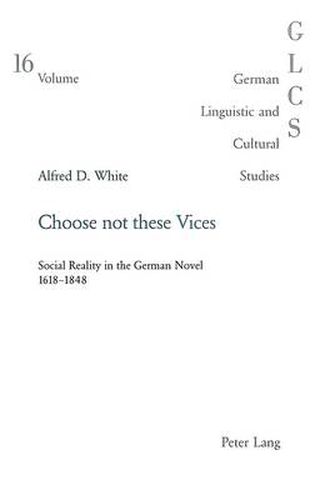Readings Newsletter
Become a Readings Member to make your shopping experience even easier.
Sign in or sign up for free!
You’re not far away from qualifying for FREE standard shipping within Australia
You’ve qualified for FREE standard shipping within Australia
The cart is loading…






This title is printed to order. This book may have been self-published. If so, we cannot guarantee the quality of the content. In the main most books will have gone through the editing process however some may not. We therefore suggest that you be aware of this before ordering this book. If in doubt check either the author or publisher’s details as we are unable to accept any returns unless they are faulty. Please contact us if you have any questions.
From the late seventeenth century into the eighteenth, critics and authors in Germany defended the novel: indeed it depicted vice and immorality, but only with the intention of exhorting the reader to avoid such dangers to the soul. This book examines outstanding novels of life from the Thirty Years’ War to the Vormarz, mostly written with this real or apparent moral aim, and evaluates them as documents of social history. The author finds that concepts of truth and plausibility are different in the early modern period. Initial and closing chapters deal with French novels, showing how approaches to society differ across national cultures.
$9.00 standard shipping within Australia
FREE standard shipping within Australia for orders over $100.00
Express & International shipping calculated at checkout
This title is printed to order. This book may have been self-published. If so, we cannot guarantee the quality of the content. In the main most books will have gone through the editing process however some may not. We therefore suggest that you be aware of this before ordering this book. If in doubt check either the author or publisher’s details as we are unable to accept any returns unless they are faulty. Please contact us if you have any questions.
From the late seventeenth century into the eighteenth, critics and authors in Germany defended the novel: indeed it depicted vice and immorality, but only with the intention of exhorting the reader to avoid such dangers to the soul. This book examines outstanding novels of life from the Thirty Years’ War to the Vormarz, mostly written with this real or apparent moral aim, and evaluates them as documents of social history. The author finds that concepts of truth and plausibility are different in the early modern period. Initial and closing chapters deal with French novels, showing how approaches to society differ across national cultures.